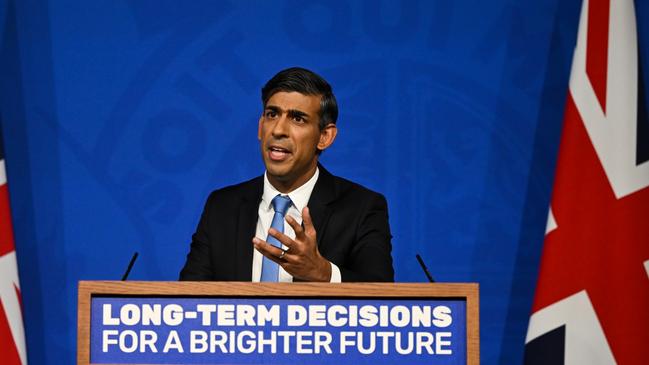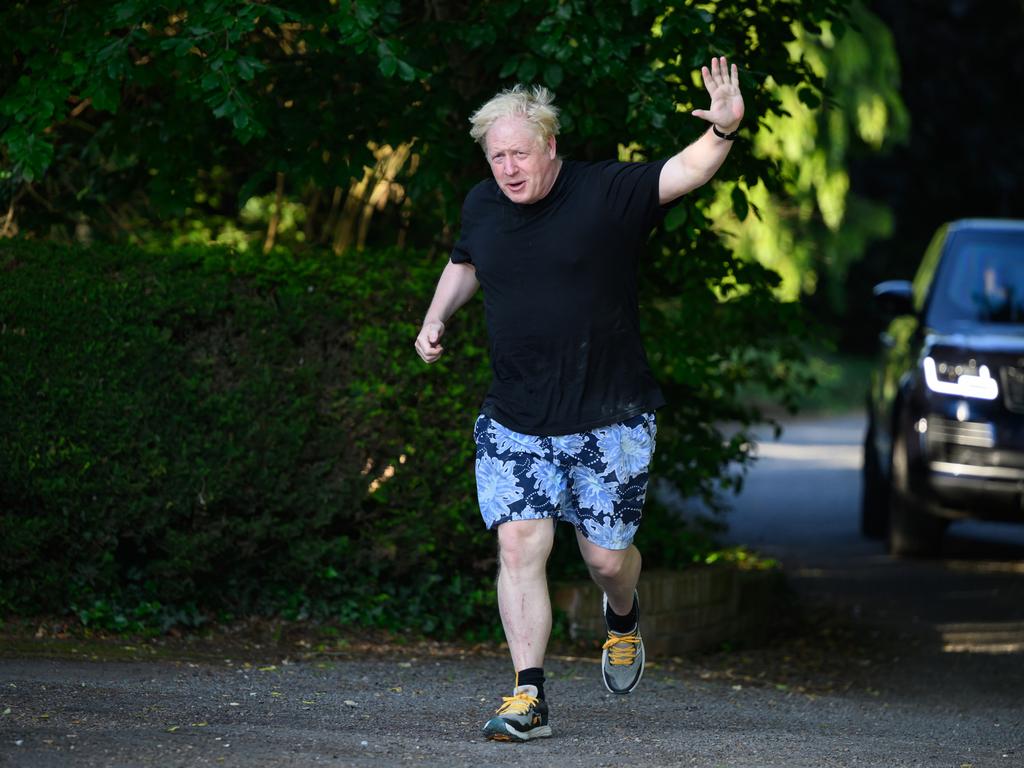Rishi Sunak waters down net zero plans over ‘unacceptable costs’
Bans on diesel and petrol cars have been pushed back five years as the UK PM dumps two of Boris Johnson’s key environmental promises.

British Prime Minister Rishi Sunak has fired the starting gun on a long campaign ahead of next year’s general election, abandoning two of Boris Johnson’s key environmental promises and scaling back on the country’s net zero ambitions.
In a dramatic about face on net zero announced on Wednesday, which puts pressure on Labour’s environmental position, Mr Sunak said the Conservative Party would no longer default to an approach “which will impose unacceptable costs on hardworking British families”.
Significantly he has pushed back the ban on sale of new diesel and petrol cars five years to 2035, aligning the UK with the European Union position.
One of the most contentious and hated net zero policies, making people pay tens of thousands of dollars for new electric heat pumps in place of oil and gas boilers, has also been pushed down the road.
The switch to heat pumps will only be enforced when buying a new boiler from 2035 and those wanting to upgrade earlier can benefit from a government grant.
Demands for households to upgrade their energy efficiency rating by next year have been scrapped.
Mr Sunak has also announced that there will be no ban on oil and gas production in the North Sea and the proposed ban on onshore wind farms is being reversed.
Another unpopular policy, of imposing seven different recycling bins on households, has also been abandoned.
Mr Sunak said his environmental approach was pragmatic. While Sunak said he remained committed to the legally-binding target of reaching net zero emissions by 2050 he believed Britain could stall it’s progress because it was “so far ahead of every other country in the world”.
But he may have also had a hard look at the deeply unpopular ULEZ charges imposed by the Labour London mayor Sadiq Khan. The $25 a day penalty – for driving older vehicles inside the M25 – has disproportionately hit poorer Londoners, and also delivered a recent shock by-election win for the Tories in Uxbridge and South Ruislip.
Polling in European nations, including in the Netherlands which goes to vote on November 22, shows that net zero issues are becoming hotly contested and could be decisive in a national election. The UK is due to have a general election by January 2025, with the date expected to be in late 2024 after the northern hemisphere summer break.
Mr Sunak said outside 10 Downing Street while delivering his government’s environmental adjustments: “The risk here to those of us who care about reaching net zero, as I do, is simple: if we continue down this path we risk losing the consent of the British people. And the resulting backlash would not just be against specific policies but against the wider mission itself meaning we might never achieve our goal. That‘s why we have to do things differently.”
Mr Sunak’s backtracking has caused a split among Tory MPs, but the decisions will be welcomed by large swathes of the electorate, especially among struggling households battling high mortgage and energy costs.
Many of the energy policies had been introduced by Boris Johnson, who claimed this week that the country cannot afford to falter now or in any way lose ambition.
He said industry and businesses must have certainty about the net zero commitments.
Mr Johnson said: “Business and industry – such as motor manufacturing – are rightly making vast investments in these new technologies.
“It is those investments that will produce a low carbon future – at lower costs for British families.
“It is crucial that we give those businesses confidence that government is still committed to net zero and can see the way ahead.”
But Mr Sunak received support from the home Secretary Suella Braverman who said the difficult decisions by the prime minister had put household costs first.
She claimed the government’s policies had been “bankrupting the British people”.








To join the conversation, please log in. Don't have an account? Register
Join the conversation, you are commenting as Logout